
Noel Scott Engel, better known by his stage name Scott Walker, was an American-British singer-songwriter and record producer who resided in England. Walker was known for his emotive voice and his unorthodox stylistic path which took him from being a teen pop icon in the 1960s to an avant-garde musician from the 1980s to his death. Walker's success was largely in the United Kingdom, where he achieved fame as a member of pop trio the Walker Brothers, who scored several hit singles, including two number ones, during the mid-1960s, while his first four solo albums reached the top ten during the later part of the decade, with the second, Scott 2, reaching number one in 1968. He lived in the UK from 1965 onward and became a UK citizen in 1970.
"Mah Nà Mah Nà" is a popular song by Italian composer Piero Umiliani. It originally appeared in the Italian film Sweden: Heaven and Hell. On its own it was a minor radio hit in the United States and in Britain, but became better known internationally after it was used by The Muppets and on The Benny Hill Show.
The Humblebums were a Scottish folk rock band, based in Glasgow. Its members included Billy Connolly, who later became a stand-up comedian and actor; guitarist Tam Harvey; and singer-songwriter Gerry Rafferty. The band was active from 1965 to 1971.

Scott 4 is Scott Walker's fifth solo album. It was released in late 1969 under his birth name, Scott Engel, and failed to chart. Reissues have been released under his stage name. It has since received praise as one of Walker's best works.
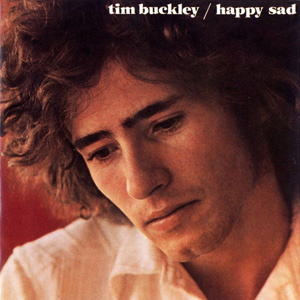
Happy Sad is the third album by American singer-songwriter Tim Buckley, released in April 1969. It was recorded at Elektra Sound Recorders in Los Angeles, California and was produced by former Lovin' Spoonful members Zal Yanovsky and, coincidentally, his subsequent replacement Jerry Yester. It marked the beginning of Buckley's experimental period, as it incorporated elements of jazz that he had never used before. Many of the songs here represent a departure from the binary form that dominated much of his previous work.

Scott 2 is the second solo album by Scott Walker, released in 1968 by Philips Records in the UK and Smash Records in the US. Featuring the minor hit "Jackie", it arrived at the height of Walker's commercial success as a solo artist, topping the UK Albums Chart.

Scott is the debut solo album by Scott Walker, originally released in the United Kingdom on Philips Records in 1967. The album received both strong commercial success as well as critical praise, hitting No. 3 on the UK Albums Chart. The album was produced by John Franz, who had previously worked with Walker's group the Walker Brothers, while its instrumental accompaniments were arranged and conducted by Angela Morley, Reg Guest and Peter Knight.
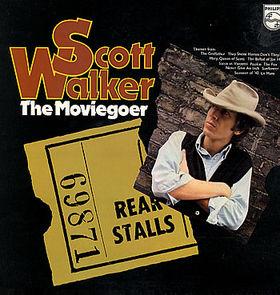
The Moviegoer is the seventh solo studio album by the American singer Scott Walker. It was released in October 1972 but failed to chart. No singles were released from the album, though "This Way Mary" was later released as a b-side to Walker's 1973 single "The Me I Never Knew". The album consists solely of renditions of film theme songs originally performed by other artists.
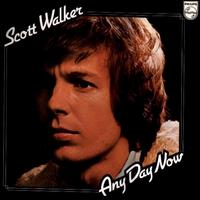
Any Day Now is the eighth solo studio album by the American singer Scott Walker. It was released in May 1973 but failed to chart. "The Me I Never Knew" was released as the album's sole single backed with the opening track of The Moviegoer; "This Way Mary". The album was also the final Walker studio album from Philips Records and he later signed with CBS Records.
John Nicholas Shakespeare, known as John Carter, is an English singer, songwriter, and record producer.

Fire Escape in the Sky: The Godlike Genius of Scott Walker is a compilation album of material by singer Scott Walker, compiled by musician Julian Cope and released by independent Zoo Records in August 1981. The material on the album was drawn from Walker's orchestral pop solo albums released between 1967 and 1970, and focuses on songs that the singer had written himself. After Walker's popularity declined in the 1970s and his albums became out-of-print, Cope conceived the album to rescue Walker from obscurity and present his material to a new audience. Whereas he had previously appealed to middle-of-the-road fans, the compilation was created to help promote Walker to a post-punk audience.
"The Impossible Dream (The Quest)" is a popular song composed by Mitch Leigh, with lyrics written by Joe Darion. It is the best known tune from the 1965 Broadway musical Man of La Mancha and is also featured in the 1972 film of the same name starring Peter O'Toole.

Portrait is the second album by the American pop group The Walker Brothers. Released in 1966 the album was their most successful and reached number three on the UK Albums Chart. The group's musical accompaniment was directed by Ivor Raymonde and Reg Guest and produced by John Franz. Receiving good to mixed reviews the album was first released in both Mono and Stereo LP formats in August 1966. The album was later released on CD having been remastered and expanded in 1998. The sleeve notes were written by Keith Altham with photography by Dezo Hoffmann.
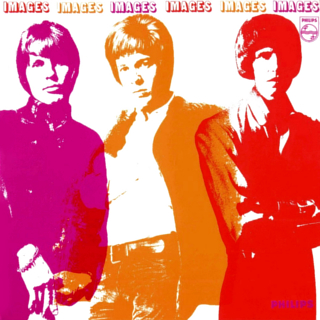
Images is the third album by the American pop group The Walker Brothers. Released in 1967 the album reached number six on the UK Albums Chart. It was the last of their trio of 1960s albums. They would not record together again until 1975's No Regrets.

Scott Walker is the stage name of the American singer-songwriter Noel Scott Engel (1943–2019), former lead singer with The Walker Brothers. He lived in the United Kingdom from the 1960s until his death.

"Lights of Cincinnati" is a song written by the English songwriters Tony Macaulay and Geoff Stephens which was first a song for the American singer-songwriter Scott Walker in 1969. The song was Walker's third solo single in the UK. The accompaniment was directed by Peter Knight.
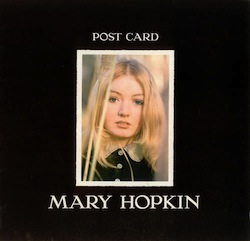
Post Card is the debut album by Mary Hopkin. It was produced by Paul McCartney and released by Apple Records in February 1969 in the UK and in March 1969 in the US. It reached number 3 in the UK and number 28 in the US.
"I Walk on Guilded Splinters" is a song written by Mac Rebennack using his pseudonym of Dr. John Creaux. It first appeared as the closing track of his debut album Gris-Gris (1968), credited to Dr. John the Night Tripper. The song has subsequently been performed and recorded by many other musicians, including Widespread Panic, The Neville Brothers, Cher, Marsha Hunt, Johnny Jenkins, Humble Pie, King Swamp, the Allman Brothers Band, Paul Weller, the Flowerpot Men, Michael Brecker, Tedeschi Trucks Band and Jello Biafra.

"Nowadays Clancy Can't Even Sing" is a song by the Canadian-American folk rock band Buffalo Springfield, released as the group's debut single in August 1966. Neil Young wrote the song in Yorkville in 1965 shortly after returning from a series of performances in Toronto, during a period when his bid at a solo career had been met with little positive response. The lyrics reflect metaphorically on Young's frustration toward his stalled career in music, and was inspired by Ross "Clancy" Smith, an aberrant classmate who incited awe in his school. Commentators recognize "Nowadays Clancy Can't Even Sing" as one of Buffalo Springfield's signature songs, as well as a milestone in Young's progression as a songwriter.
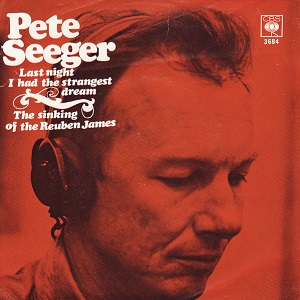
"Last Night I Had the Strangest Dream" is a song written by American folk singer-songwriter Ed McCurdy in 1950. Due to McCurdy's connection with fellow musicians, it was common in repertoires within the folk music community. The song had its first album release when Pete Seeger recorded it as "Strangest Dream" for his 1956 album Love Songs For Friends & Foes. Seeger would later re-visit the song for his 1967 album Waist Deep in the Big Muddy and other Love Songs. The strong anti-war theme of the song led it to be recorded by multiple other artists, including The Weavers (1960), Joan Baez (1962), The Kingston Trio (1963), Simon & Garfunkel (1964), and Johnny Cash who released two versions of the song during the 2000s.














